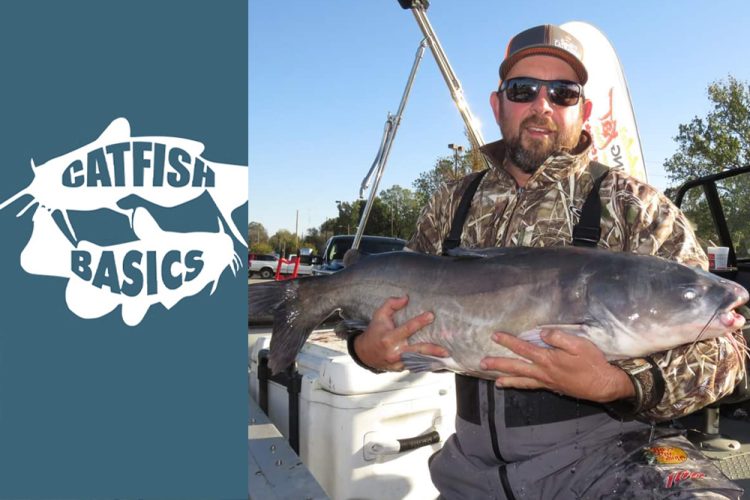Catfish Basics #173, Dragging Baits with Chad Mayfield
Dragging baits is one of my favorite methods of fishing, and I don’t really change anything no matter what season it is. Instead, I let the fish tell me how they want it presented to them.
I always start out holding my speed at 0.5 mph. If I’m marking suspended fish but they are not biting, I’ll slow down to 0.2 to 0.3 mph to give them more time to react.
If I’m seeing fish that are holding tight against the bottom, I will shorten my leader and weight to get the bait closer to the bottom.
Sometimes I notice the fish are just pecking at the bait and not really committing. In this case, I like to speed up the boat to force them to react or miss a meal. If that does not work, I keep a pair of scissors in the boat for trimming the baits into small bite-size pieces, but I always start out with larger baits.
To me, the process of keeping your weights moving smoothly across the bottom is the most important tactic of a successful drag. The correct weight size is an important factor, too. If it’s too heavy, it will grab the bottom, putting pressure on the rod, which acts like a spring propelling the bait across the bottom. If the weight is too light, it may cause the bait to float up or skip over depressions on the bottom.
I’ve also found that the action of the rod makes a big difference. A heavy-action rod will not flex as easily, causing the bait to be launched rapidly every time the weight rides over a log or rock. I’ve recently switched to the medium-heavy Slick Stix Fishing rods for dragging and drifting. They have a soft enough tip to absorb the impact and keep the bait moving smoothly across the bottom while providing the right amount of backbone to set the hook.
(Editor’s note: Chad Mayfield of Pell City, Alabama is a lifelong catfishing enthusiast. He started competing in catfish tournaments almost 20 years ago. “I’ve been humbled many times but learned something from every event,” he says. “I’ve watched the sport grow to what it is today, and I’ve met some incredible fisherman that I now call my friends and co-anglers.”)



